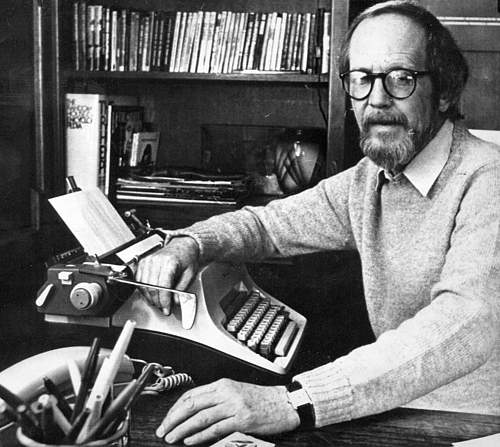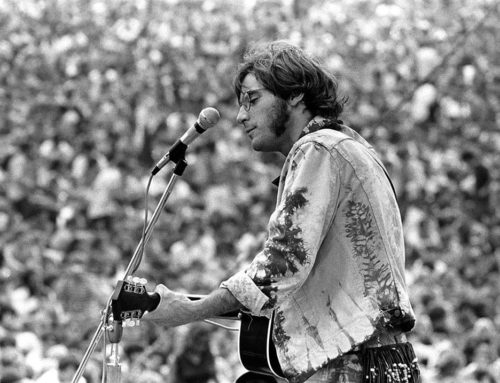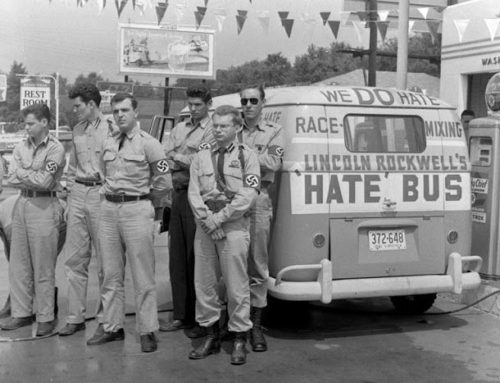It was 10:30 in the morning when I walked out of my room in the convention hotel and headed down the extraordinarily long hallway.
It was unusual for me to sleep so late but I was feeling great from the extra rest and, as I said to a friend I ran into in the elevator, I had been going at such a pace that either my body or my subconscious mind was sending me a very powerful message.
As we walked into the lobby outside the Grand Ballroom, the coffee and the baked treats looked amazing. And then as I reached out my hand to greet another friend, the reason why 10:30 a.m. was important struck me like a gong.
I was supposed to be onstage, on the other side of those doors, delivering the keynote address to 5,000 people.
Leaving my bag where it stood, I started sprinting back to my room. I ran like Tom Cruise in a Mission Impossible movie, fists pumping higher than my shoulders, knees pumping above my belt line. I was Usain Bolt. I was Seabiscuit. I felt the adrenalin rise in the base of my spine—the Kundalini!—and felt my torso angle back as my legs went faster than my body could follow. But where was I going? I had left no speech notes in my room. There were no notes because I had done absolutely nothing to prepare. Could I stand on the stage and fill 55 minutes with nothing but random thoughts?
That was when I started to scream.
And then I woke up, poured myself a cup of coffee and climbed the stairs to my garret to start writing. That ballroom was ten days and a thousand miles away. I had plenty of time.
So what was I so afraid of? I had just finished co-authoring a 530-page book on innovation, a three-year case study of one of the great business stories of the decade. It wasn’t like I didn’t have any material. And I’d been picked to speak based on my personal reputation with one of the executives, whom I had known for years, who had read the book and seen me speak elsewhere. Plus, I’d spent years working as a speech coach, helping people through just this kind of anxiety. If anybody could feel confident about getting on stage, it should be me.
And yet I had been avoiding putting my notes together because every time I thought about the upcoming speech, I had a sudden inspiration to do something, anything, else. To play Plants vs. Zombies or look at real estate bargains in Bulgaria suddenly seemed like reasonable activities in lieu of preparation.
Why? Because I feared I wasn’t good enough. Just like everyone else.
Fear of falling short is one of the great diseases of life, a disease so common that, if you feel you don’t suffer from it, I urge you to seek immediate professional help. According to no less a light than Abraham Maslow, “The story of the human race is the story of men and women selling themselves short.”
It’s nice to know we’re not alone when we look in the mirror and judge ourselves harshly. Listen to the things people confide to hairdressers and plastic surgeons: I’m not pretty enough. I’m not thin enough or old enough or young enough. I don’t work hard enough. I don’t have enough free time. I don’t make enough money (well, actually, that one’s probably true for most of us). People obsess that their feet and noses are too big and their other parts are too small. So noses get done, faces get lifted and tummies get tucked. And let’s not even talk about the latest fast-growing trends for making people feel better about what’s inside their pants (if you think I’m kidding, just Google phalloplasty and vaginoplasty). It’s “I love me,” “I love me not,” from the cradle to the grave as we build a daisy chain of desire and disappointment.
I’m not saying that nothing positive comes out of it. I have calculated that 39.873% of the GDP comes from money spent by people trying to make themselves feel complete about who they are. For reference, that’s more than our outrageous Defense budget and about equal to the money spent trying to make you feel bad about the other political party (you know, the one that’s filled with idiots who make you feel smart compared to them). The truth is, our economy would collapse if we all woke up feeling fine about who we are. Much of the pharmaceutical industry and almost all of the cosmetic industry (I do think lotion is a good idea) depend on us to worry about things like how we smell or whether our teeth are white enough. Hollywood depends on being able to help you forget how completely insignificant you are compared to them and they do it – this is the hilarious part – through the vehicle of feel-good underdog movies. Charlie Chaplin, Jack Lemmon and Woody Allen built great and lucrative careers on the persistent performance of underdog roles. We love to see characters who are no smarter or prettier than us take on the world and come out on top, gripping and grinning to the credits. If they can do it, we can do it.
Well, actually, probably not.
Don’t get me wrong: I don’t mean you can’t reach your goals; you can! Yes, you can get the promotion and rise gloriously to the top of the pyramid. Yes, you can slim down and buy the pumps that get you noticed by the billionaire with the kind eyes and marry him.
Yes, you can win the race, scale the heights and get the standing ovations. I believe in you, I want you to succeed and I know you can do it.
I’m just saying it won’t matter. You still won’t feel like you’re enough. If you doubt that, if you doubt that success and money won’t make you like yourself better, just pick up any tabloid in the supermarket or look at a picture of Donald Trump. If don’t like yourself the way you are; if you can’t feel how great it is to be you—right now, as you are—money isn’t going to change that. Not in the long run.
I love quotes by John Lennon. I’m aware that if John Lennon were here, he would tell me go away and leave him alone but his quotes are still nice. Here’s one I like: “Give yourself a break./Life wasn’t meant to be run./The race is over, you’ve won.” What he’s saying is, this is life, love it or leave it. If you can’t enjoy it while you have it, when will you? The short answer, for most human beings is: probably never.
The Maslow quote above is something I’ve arranged to pop up on my screen every morning, because selling ourselves short may be the most common cause of anxiety, frustration and failure. It’s the original sin, to think one is not worthy of love, even God’s. To think one is insufficient to the needs of the world. To think that, down deep, that one secret belief out of the thousands you have buried in the back of your mind—that basically, you suck—is the one belief that is actually the true one. It’s not, but me saying that probably doesn’t help.
Another thing that pops up on my screen is a picture of the novelist Elmore Leonard sitting at a typewriter. It’s there to remind me of the story that his first novel was rejected by 84 different publishers. I love that story, because it brings up the question, “What was he thinking?!!” As he packaged up the manuscript for the 85th time, what was going through his mind? This time will be different?

Imagine being turned down for dates by 84 people in a row. Having your dog bite your hand on 84 attempts to feed it. Trying to take Dead Man’s Corner with the pedal to the metal and totaling your Dad’s car 84 times. How crazy do you have to be not to realize that you and your book are not good enough? Did Mr. Leonard think that something different was going to happen the 85th time? Isn’t that the definition of insanity? And yet, something different did happen. Because he didn’t sell himself short. He kept sending the book out until, finally, somebody noticed how good it was. More than forty books later, it doesn’t sound crazy at all.
For all I know, Mr. Leonard woke up screaming at night, too, wondering what he would do with his book when the world ran out of publishers to reject him. But here’s a question: Suppose he’d had no rejections. What if the last publisher had happened to be first on the list? What if the book had sold the first time out? Would that make any difference to the value of the book? Would it make any difference to the value of the person? Published or unpublished, did it make any difference to whether or not he was good enough as a human being?
Kurt Vonnegut didn’t think so. Speaking on stage with his fellow author, Lee Stringer, he talked about the value of the act of just writing. “Anyone who has ever finished a book, whether the thing has been published or not, whether the thing is any good or not, is a colleague of ours.”
Think about that. Whether what you do with your life is any good or not, success or failure, win or lose, Kurt Vonnegut still thinks you’re good enough, just for having done it. And so do I and so does your dog. The fact that your cat may not agree simply says something about cats.



